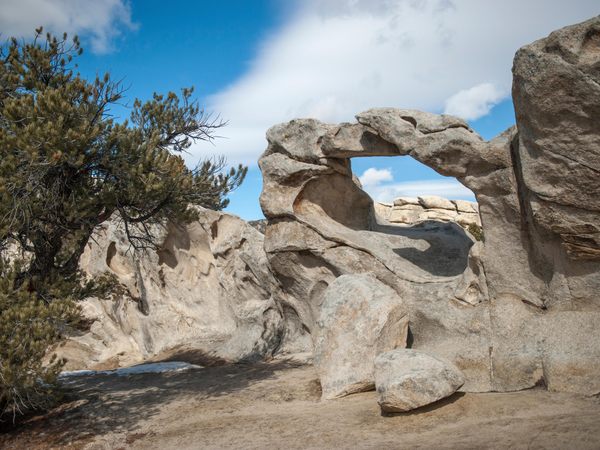Massive granite formations standing hundreds of feet tall, some as ancient as 2.5 billion years old—Idaho’s City of Rocks has some of the most dramatic landscapes you’ll find on a U.S. natural reserve.
Native American tribes, such as the Shoshone and Bannock, have long considered the area to be sacred. Towering chalk-white and gray spires (also known colloquially as “steeples”), across elevations ranging from 5,700 to 8,800 feet, giving off a surreal and otherworldly presence. These granitic formations and monoliths, covering over 14,000 acres throughout the natural reserve, are some of the oldest exposed rocks which can be found in North America.
Located just a few miles from the town of Almo, the City of Rocks earned its name from the 200,000-some emigrants who traveled through the area on the California Trail in the mid-1800s. Many marveled at the formations’ semblance of imposing buildings, much like a cityscape (this also led to another nickname for the area, “the Silent City”). Some rocks can still be seen bearing the names of emigrants who inscribed them on with axle grease. It’s a tradition which has been continued by visitors throughout the ages though today is frowned upon by park officials due to conservation reasons.
Today, the City of Rocks is a paradise for rock climbers. There are over 1,000 climbing routes on the natural reserve, ranging in difficulty levels as well as landscape formations. During the winter, sporting activities such as snowshoeing, cross-country skiing and sledding are popular means of hitting powdery nature trails framed by the incredible stony spires.
Several formations are considered iconic: “The Twin Sisters” (double granite spires towering 750 feet above the basin floor), “Elephant Rock” (a gigantic monolith which appears to have elephant leg- and trunk-like outcroppings), Bath Rock (“a massive formation famous for smooth, bathtub-like depressions collecting water), as well as two rounded granite slabs known as “The Bread Loaves”.
Despite such an arid appearance and proclivities towards quiet contemplation, City of Rocks is known to be a thriving ecosystem for flora and fauna. A wide variety of plant and animal species call it home, including mule deer, mountain lions, and over 100 species of birds.

